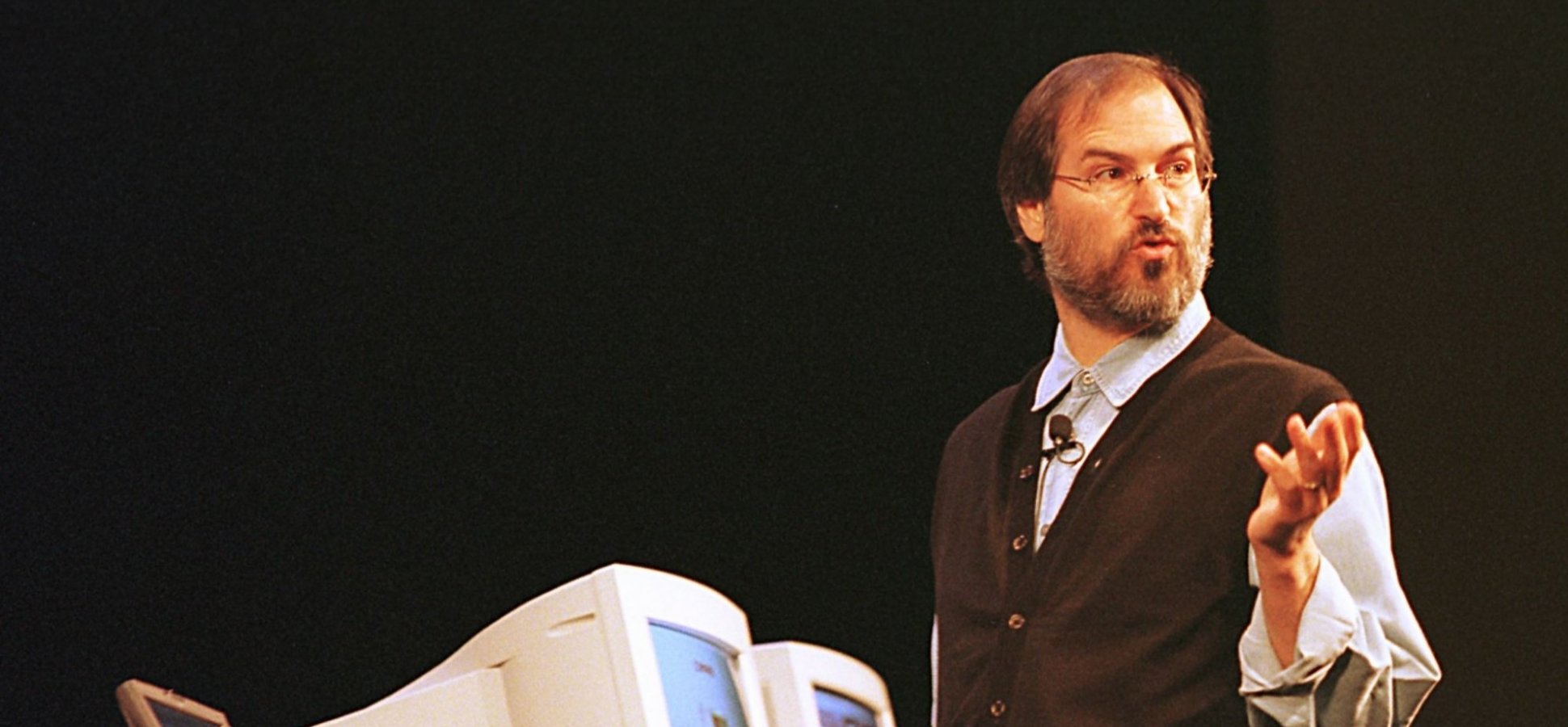Without it, you’re doomed to a life of distraction. A life in which others’ priorities dictate on what you spend your time. As you move from one shiny object to another, you may get lots of things done–but few things ever get done well.
Or, you may find your life is ruled by procrastination, where doing great work is derailed by social media and YouTube videos.
But how can you learn to achieve focus, in a world that is built to distract?
In 1997, Steve Jobs had just returned to Apple, the company he had been ousted from over a decade before. He was answering questions from developers at Apple’s Worldwide Developers Conference when someone raised the topic of “OpenDoc,” a software engineering framework that Jobs decided to kill upon his return.
In addressing the question about OpenDoc, Jobs took opportunity to drop some major wisdom.
“I know some of you spent a lot of time working on stuff that we put a bullet in the head of,” begins Jobs. “I apologize. I feel your pain.” The audience laughed appreciatively.
He continued:
“But Apple suffered for several years from lousy engineering management. And there were people that were going off in 18 different directions–doing arguably interesting things in each one of them. Good engineers. Lousy management.
And what happened was, you look at the farm that’s been created, with all these different animals going in different directions, and it doesn’t add up. The total is less than the sum of the parts. And so we had to decide: What are the fundamental directions we’re going in? And what makes sense and what doesn’t? And there were a bunch of things that didn’t. And microcosmically they might have made sense; macrocosmically they made no sense.
…When you think about focusing, you think, well, focusing is about saying yes. No.
Focusing is about saying no.“
Focusing is about saying no.
This ability to say no was arguably Jobs’s greatest skill. When Apple brought Jobs back, his first order of business was to shrink the product line–and make sure whatever Apple made, it made extremely well.
“Steve was the most remarkably focused person I’ve ever met in my life,” said Jony Ive, Apple’s design chief and the man Steve Jobs once described as his “spiritual partner.” In an interview for Vanity Fair a few years ago, Ive explained why achieving focus isn’t as easy as it appears on the surface.
Ive says his boss would regularly ask him: ‘How many things have you said no to?’
“Well, I said no to this. And no to that,” Ives would tell Jobs. “But,” Ives continues, “he knew that I wasn’t vaguely interested in doing those things anyway.”
“What focus means is saying no to something that you [think]–with every bone in your body–is a phenomenal idea,” he concludes. “And you wake up thinking about it. But you say no to it because you’re focusing on something else.”
Putting It Into Practice
Whatever your role or position, you’re faced with choices about your work on a daily basis. Should I join this meeting? Do I really want to take on this client or project? Should I focus on this task at the expense of that one?
For many, it’s not easy to say no. You may try to rationalize: “I don’t want to hurt anyone’s feelings. They won’t understand. I’ll find a way to get it all done.”
No, you won’t.
Learning to say no begins by sharpening your emotional intelligence–the ability to make emotions work for you, instead of against you. By refusing to let temporary emotions lead to permanent decisions, you’ll realize that lack of focus easily leads to regret.
Then, instead of trying to do it all…
You can simply do it right.
So, choose wisely.
Because every time you say yes to something you don’t really want, you’re actually saying no to the things you do.
You may also like:
Steve Jobs Knew How to Write an Email. Here’s How He Did It
The Top 5 Things You Should Never Compromise When Building Your Career
Originally published at www.inc.com


